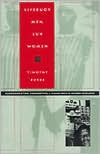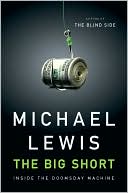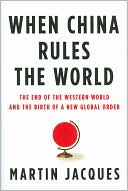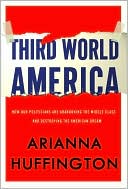Lifebuoy Men, Lux Women: Commodification, Consumption, and Cleanliness in Modern Zimbabwe
How do people come to need products they never even knew they wanted? How, for example, did indigenous Zimbabweans of the 1940s begin to believe that they required Lifebuoy soap? Offering a glimpse into the intimate workings of modern colonialism and global capitalism, Timothy Burke takes up these questions in Lifebuoy Men, Lux Women, a study of post-World War II commodity culture in Zimbabwe.\ With particular attention to cosmetic products and the contrast between colonial and pre-colonial...
Search in google:
How do people come to need products they never even knew they wanted? How, for example, did indigenous Zimbabweans of the 1940s begin to believe that they required Lifebuoy soap? Offering a glimpse into the intimate workings of modern colonialism and global capitalism, Timothy Burke takes up these questions in Lifebuoy Men, Lux Women, a study of post-World War II commodity culture in Zimbabwe.With particular attention to cosmetic products and the contrast between colonial and pre-colonial ideas of cleanliness, Burke examines the role played by commodity culture, changing patterns of consumption, and the spread of advertising in the making of modern Zimbabwe. His work combines history, anthropology, and political economy to show how the development of commodification in the region relates to the social history of hygiene. Within this framework, and drawing on a wide variety of historical sources, Burke explores dense interactions between commodity culture and embodied aspects of race, gender, sexuality, domesticity, health, and aesthetics in a colonial society. Rather than viewing the production of needs simply as an imposition from above, Lifebuoy Men, Lux Women shows what heterogeneous and complex processes, involving the aims and histories of both colonizers and colonized, produced these changes in Zimbabwean society.Integrating political economy, cultural studies, and a wide range of the social sciences, Lifebuoy Men, Lux Women will find readers among scholars of colonialism, African history, and ethnography as well those for whom the problem of commodification is a significant theoretical issue. American Historial Review This important, engaging, and theoretically sophisticated study explores the history of consumption in twentieth-century central Africa. . . . [A]t the same time that Burke provides a compelling 'biography' of a commodity, he raises and reframes a series of crucial questions regarding the histories of modern African societies.
AcknowledgmentsIntroduction11Cleanliness and "Civilization": Hygiene and Colonialism in Southern Africa172Education, Domesticity, and Bodily Discipline353Buckets, Boxes, and "Bonsella": Precolonial Exchange, the "Kaffir Truck" Trade, and African "Needs"634Manufacturing, the "African Market," and the Postwar Boom915The New Mission: Advertising and Market Research in Zimbabwe, 1945-19791256Bodies and Things: Toiletries and Commodity Culture in Postwar Zimbabwe166Appendix: Budgetary Charts, 1957-1970217Notes229Bibliography271Index293
\ American AnthropologistFor those who work in Zimbabwe, Lifebuoy Men, Lux Women will be a welcome addition to the literature. It will also be of great use to other Africanists, as well as those interested in the theoretical intersections of commodity culture, desire, and the colonial encounter.\ \ \ \ \ American Historial ReviewThis important, engaging, and theoretically sophisticated study explores the history of consumption in twentieth-century central Africa. . . . [A]t the same time that Burke provides a compelling 'biography' of a commodity, he raises and reframes a series of crucial questions regarding the histories of modern African societies.\ \ \ ChoiceThe overlapping layers of this book are as successively fascinating as the subject matter is unusual and treated thoughtfully, both theoretically and empirically.\ \ \ \ \ History Journal of AmericanBurke . . . has a keen eye for many ironies and paradoxes occurring at the point of reception, where African men and women, variously located in colonial society, gave their own twist and meaning to products and messages as these reached them. . . . [A]dmirably nuanced and subtle.\ \ \ \ \ History Journal of InterdisciplinaryLifebuoy Men, Lux Women's greatest contribution is its theoretical connection of previously disparate fields of inquiry and its development of perspectives and strategies about the changing conceptualization and realization of cleanliness and body care in Zimbabwe.\ \ \ \ \ Journal of Social HistoryBurke has produced an imaginative, even thought-provoking, work. . . .Lifeboy Men, Lux Women remains a lively addition to the historical literature on Zimbabwe and southern Africa more generally. It will no doubt be variously acclaimed and assailed, but it is unlikely to be ignored.\ \








